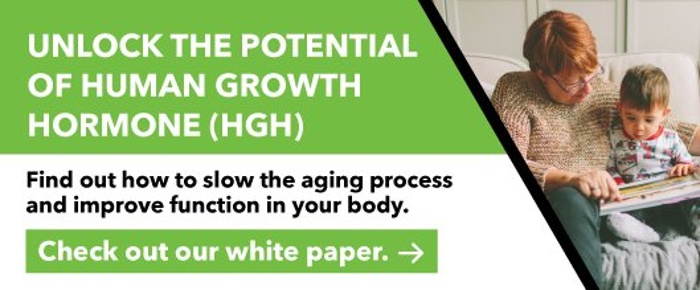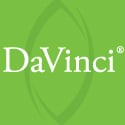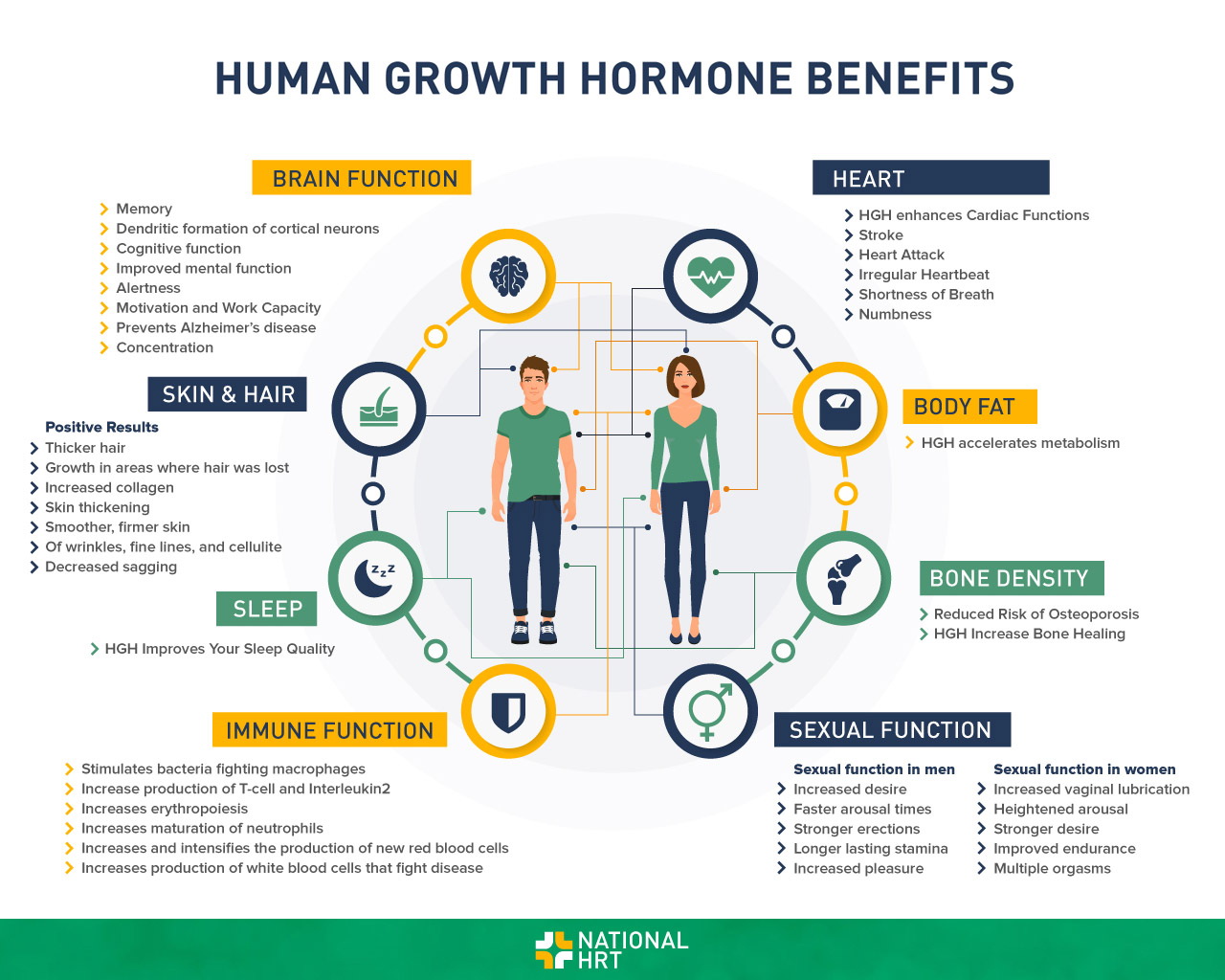
In the world of both conventional and alternative medicine, there are countless methods for aging gracefully and leading the healthiest life possible. Boosting our natural production of human growth hormone (HGH) has received a lot of attention for its potential health benefits. However, it’s important to note that there are a few side effects to be aware of for those considering taking actual HGH directly.
While the functions and benefits of this hormone are essential, naturally supporting the body’s pathways for optimal HGH production instead of turning to injections or other direct applications is a safer, more effective approach. Unless you require hormone replacement therapy for a particular condition, it’s best to avoid the potential side effects of taking Human Growth Hormones directly.
This hormone plays a crucial role in growth, cell regeneration and reproduction, tissue and muscle growth, and repair, and wound healing. Recently, HGH has been studied for its potential to slow the aging process and prevent degeneration from age-related issues.
Specific health challenges can call for HGH injection and direct application, but for the average person seeking to support healthy and optimal aging, boosting HGH naturally with lifestyle and nutrition changes is effective and safe.
Potential Adverse Side Effects of Direct HGH
Even when used for medical reasons, certain adverse side effects are reported with HGH injections and direct applications. The following side effects are the most common and should be discussed with your provider if you are currently taking HGH or are considering it.
Muscle and Joint Pain
One of the most common side effects of HGH injections are muscle and joint pain, aches, and stiffness. One study examining the safety and efficacy of the use of HGH for age-related decline found that 30% of the participants in the HGH group experienced these secondary effects, along with others.1
Swelling
Fluid retention and swelling is another common adverse side effect of direct HGH. Particularly with injections, swelling of the feet, hands, arms, and legs is often seen.
Carpal Tunnel Syndrome
Another common side effect of excessive HGH is carpal tunnel syndrome, which affects the median nerve that runs between the hand and forearm.2 This condition causes pain, weakness, and numbness in the wrists and hands.
High Cholesterol
The verdict is still out as to whether HGH consumption negatively impacts cholesterol levels, but for those taking HGH, it’s advised to track cholesterol levels. Some studies have shown higher levels of lipoprotein(a), which is a known contributor to atherosclerotic plaques in artery walls.3 Some patients taking HGH directly may need to be put on a cholesterol-lowering medication to counter its effects.
Other less common but reported side effects of excessive HGH include numbness and tingling of the skin, increased risk of diabetes, growth of cancerous tumors, mood changes, and dysregulated blood sugar, among others.

Natural Support for HGH Production Instead
For those who don’t require medically supervised direct application or injections of HGH due to a health issue, the ideal way to reap the benefits of optimal HGH levels is to support its production via proper nutrition and lifestyle changes naturally.
Here are four simple ways to begin supporting optimal HGH levels:
Adequate Protein Intake
While a balanced diet of nutrient-dense foods from all three macronutrients is crucial, protein is the most noteworthy when it comes to boosting HGH levels naturally. Amino acids in protein are the building blocks for cells, and they are essential for sending growth signals to organs, tissues, muscles, and collagen.
Arginine, in particular, directly contributes to the production of growth hormones in the human body, so be sure to include arginine-rich foods like turkey, chicken, and pumpkin seeds in your diet.4 The amount of protein your body requires varies person to person and depends on various factors, but typically a diet where 20-30% of calories come from protein is reasonable.
Sufficient Restful Sleep
The time we spend in deep sleep (delta sleep) is when HGH production is highest. So, if you aren’t sleeping enough or aren’t getting restful sleep, it has a direct negative impact on HGH levels. If you struggle with insomnia, learn more about sleep hygiene practices, and consider working with a doctor or healthcare practitioner who specializes in sleep.
Exercise
All types of exercise can support increased production of HGH, but high-intensity training is the most beneficial.5 This is likely due to higher concentrations of lactic acid, which also works to signal the release of the growth hormone.
A quick and effective method for increasing your HGH production with exercise is high-intensity interval training (HIIT), which can be tailored to each individual’s fitness level, exercise preferences, and lifestyle, and it doesn’t require equipment.
Intermittent Fasting
Intermittent fasting, or time-restricted eating, is an ancient practice that supports metabolic function and healthy aging. Upon waking, the body naturally has higher HGH, lower insulin, and more elevated cortisol, which is the ideal state for fat loss. When the first meal is consumed, the metabolism shifts to fat-storage-mode and insulin levels rise.
High insulin levels inhibit HGH release, while low insulin levels boost HGH levels. Extended fasts, lasting two days, and intermittent fasting, where you refrain from eating for 12-24 hours at a time, has a significant impact on HGH production.
If you have questions about HGH and potential issues or deficiencies, it’s essential to check in with a trusted healthcare provider before taking any action. For those without special conditions that require direct HGH use, simple diet and lifestyle interventions to naturally boost HGH levels are safe and effective, and it can help you avoid the potential adverse side effects of taking the hormones directly. Enough protein, exercise, sufficient sleep, and intermittent fasting will work two-fold by optimizing HGH levels and supporting overall health and aging.

Additional Sources:
1“Growth hormone, athletic performance and aging.” https://www.health.harvard.edu/diseases-and-conditions/growth-hormone-athletic-performance-and-aging. Accessed October 15, 2019.
2“Carpal tunnel syndrome and gynaecomastia during growth hormone treatment of elderly men with low circulating IGF-I concentrations.” 1993. https://www.ncbi.nlm.nih.gov/pubmed/8287568. Accessed October 15, 2019.
3“Growth hormone treatment increases circulating lipoprotein(a) in children with chronic renal failure.” 1996. https://www.ncbi.nlm.nih.gov/pubmed/8961129. Accessed October 15, 2019.
4“Acute effect of amino acid ingestion and resistance exercise on plasma growth hormone concentration in young men.” 1997. https://www.ncbi.nlm.nih.gov/pubmed/9063764. Accessed October 19, 2019.
5 ““The exercise-induced growth hormone response in athletes.” 2003. https://www.ncbi.nlm.nih.gov/pubmed/12797841. Accessed October 15, 2019.



















